Good morning and Happy Friday! Have a great weekend!
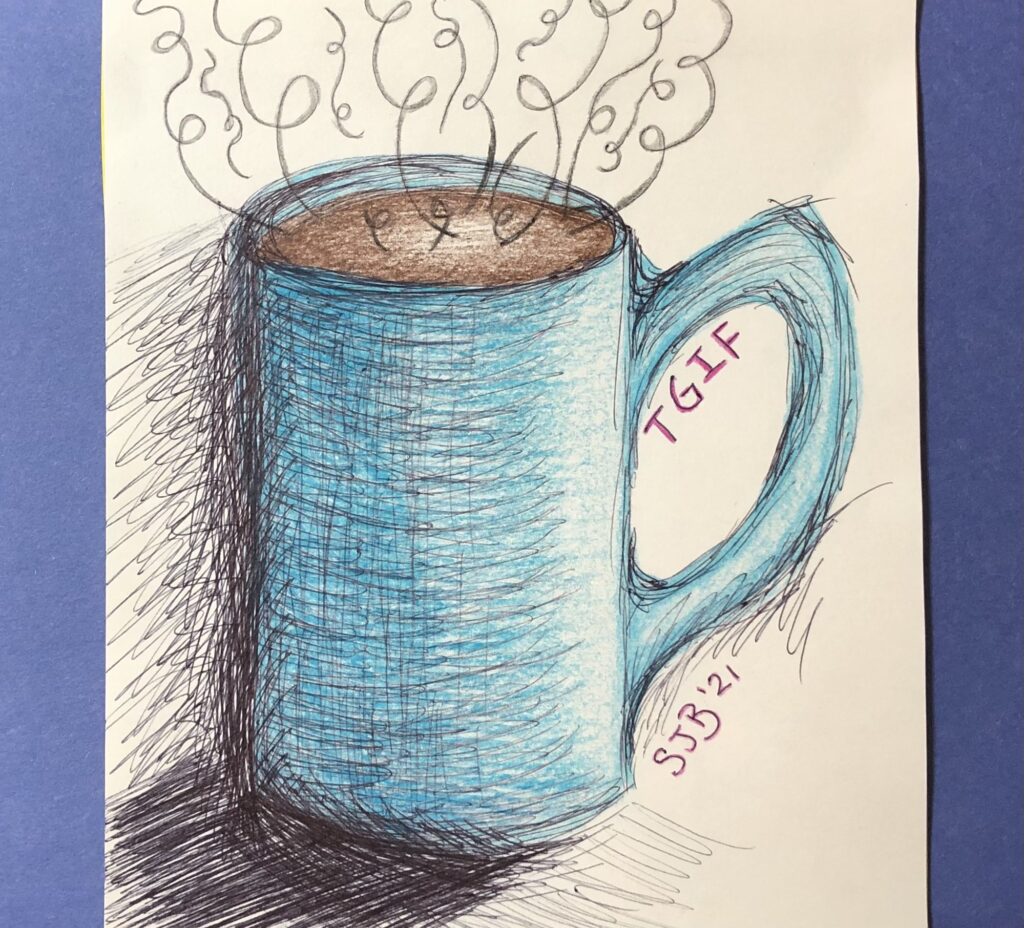
—SJB
Author & Artist
Good morning and Happy Friday! Have a great weekend!

—SJB
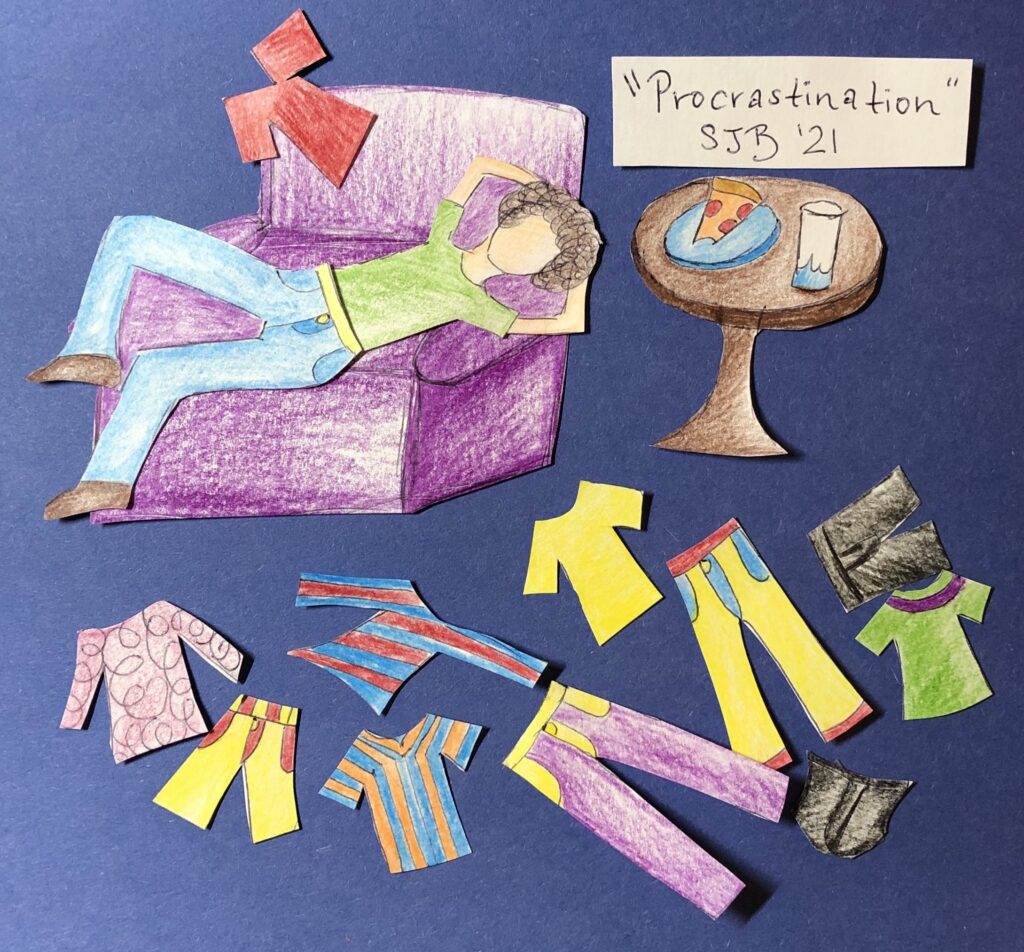
Waiting until the last minute gives some of us extra motivation to finish work when the deadline is impending. For others, dread fills us to the brim. Often, the work doesn’t ever happen at all.
Procrastinators are often characterized as “lazy.” For many years, I accepted that as my own character flaw. My views on the matter were altered when I entered therapy.
I didn’t work with a therapist until five years into my illness. I had a psychiatrist, medication, and lots of problems. I had no idea how much I needed to talk to someone.
I began seeing a psychologist in 2009. It changed me forever. I released my emotions, worked through several problems with her guidance, and would not be the same without her help.
I was in college studying art. I started skipping my drawing class. It was too difficult for me. I have always had trouble with perspective and realism, beginning in my Thursday afternoon art lessons in elementary school. Trying to depict reality has always been so frustrating for me. I was in the dark until the fifth grade, when I realized that there are other techniques and areas of art to explore. I didn’t have to make things look real in order to express myself!
In that college drawing class, though, it was vital in order to pass and the teacher was ruthless. He was especially stern with me because I wasn’t improving despite his suggestions. So I skipped one of his drawing classes.
Then I skipped another, and another. I skipped a week of his drawing classes. Then I stopped going entirely.
With a stomach full of dread and my anxiety level through the roof, it seemed that the more classes I missed, the harder it would be to catch up. Therefore; I never returned. Procrastination as I have never seen the like.
I suffered through every day of college, unstable because of my mental illness. I didn’t seek help from the Disability Resources Department because I didn’t know it existed.
It wasn’t until years later that I learned a fact of utmost importance from my therapist. My “laziness” and procrastination were tied to my mood disorder. Sometimes I was literally “not in the mood.” And it wasn’t my fault!
Try not to punish or misunderstand the procrastinators in our midst. Truly, sometimes there is an underlying reason for appearing “lazy.”
Next time you feel “lazy,” or continue to spiral into procrastination, look it in the face and ask yourself where it comes from. It could be a characteristic of a mood disorder, and entirely no fault of your own.
It is something to ponder, whenever you’re in the mood.
—SJB
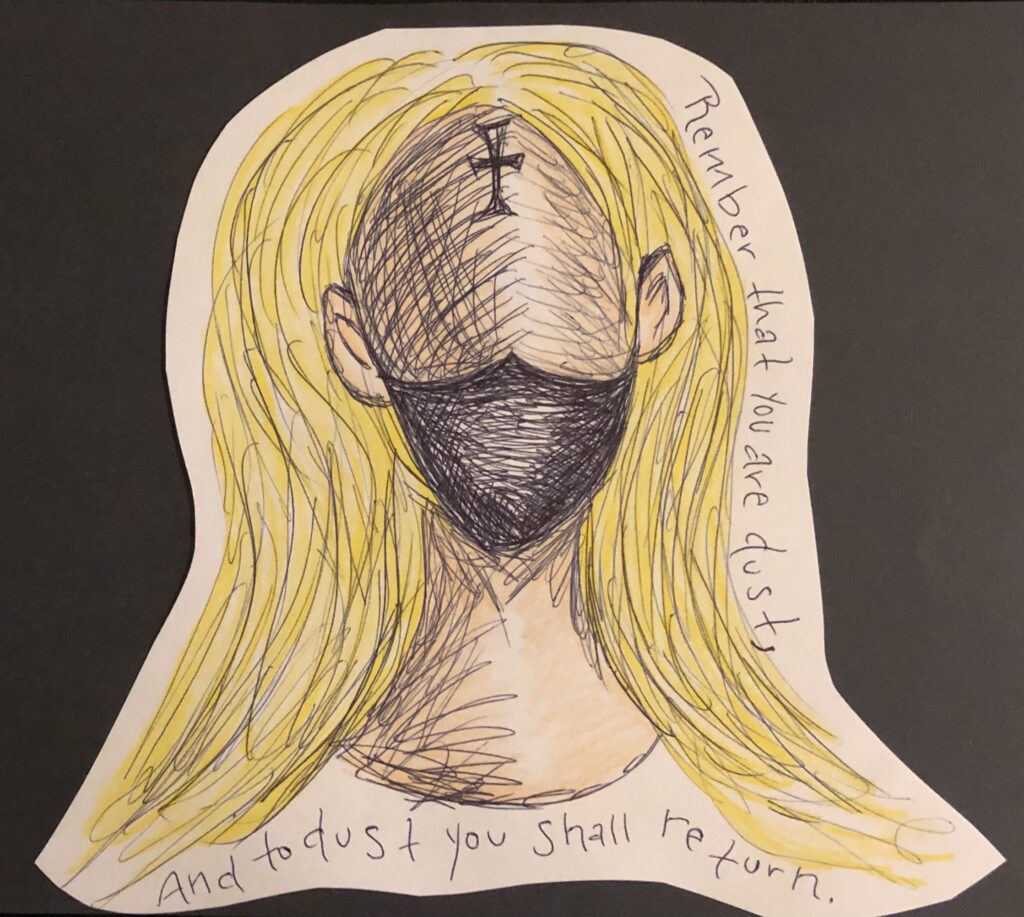
In the Episcopal Church, we celebrate a season called “Lent.” It is a time to reflect on choices we have made in our past, forgive ourselves and others who have wronged us, make a sacrifice for the entirety of the season (giving up a bad habit or quitting something in our lives we feel is wrong), and to take up a daily or weekly practice which will strengthen our relationship with God.
We have given up so much already. We have covered our noses and mouths in attempts to save ourselves and our neighbors from a deadly virus. We have kept our distance from family and friends. We have celebrated holidays in the most unconventional ways. We have lost loved ones. It may seem a tough calling to give more to God. Prayers, certainly. More sacrifices?
I have decided to be more grateful and to take nothing for granted. Today, I would like to voice a sense of gratitude I feel for the people who are doing everything they can to help others. I feel very grateful for those protecting each other from COVID-19 and all other perils this world has recently thrown our way. I want to thank those who are continuing to stay the course as we dream of “normal” daily lives ahead.
I am grateful for the life God has given me. I am ever thankful for my family and friends, my husband, and the knowledge that this is not the end. We are reminded in this season of “Lent” that we are but dust, and to dust we shall return. If that happens sooner than later for me, I have lived a full and happy life with no regrets. I have learned to love deeply and I believe that one of the most important lessons life teaches us is to love our neighbors as ourselves. This proves to be difficult for us all. There are people in our lives who are hard to love, but those are the relationships that need love the most. They are the challenges God has given us to make peace with one another, to reconcile with those around us from whom we most differ.
If you are angry with God and feel abandoned, I implore you not to give up on God. A spiritual practice can bridge the gap in your relationship with God. Even if you feel you have exhausted all of your resources and have nothing more to give, open your heart, soul, and mind to receive God’s healing spirit.
In this Lenten season, I challenge you to set spiritual goals for your relationship with God. If you do not believe in God, or you call God by a different name, know that all beliefs are welcome in this challenge. Make a list of things you would like to change, give up, or a person to forgive. Practice these spiritual goals in the weeks to come, remembering them always in the back of your mind. This is not a New Year’s resolution. It is not a goal like losing weight or a secular practice like writing a letter to Santa. Look deep within yourself and see what changes you can make to bring you closer to God. You will gain a better understanding of love and hopefully strengthen your relationships with your neighbors.
As we say in the Episcopal Church, “Peace Be With You.”
–SJB

In my younger years, I dreamed of having a life similar to my parents’ life together. I would meet a man in college, fall in love, get married, and raise children. To reiterate an article I recently published, this plan was set in motion by playing with my sisters and living life through Barbie.
Playing with Barbie had its flaws. One of the largest problems was having only one Ken doll surrounded by several Barbie dolls (I’m quite certain he had no complaints). The bigger issue was that the game always ended in happily ever after with marriage and children. We had no idea what life held in store for real people beyond that.
My childhood fantasy of marriage and children continued well into my adult years and I looked forward to a wedding day, a husband, pregnancy, labor, and kids. That is what it was, though–a fantasy. I didn’t think of the struggles of marriage, the sleepless nights when children wake or never sleep at all. I did not consider the financial and physical strain of real life; I only dreamed of having a family of my own.
Though I know that the life I wanted then is not the life I want for myself now, life dealt me a cruel hand. My illness is too severe to toy with the idea of sleepless nights, carrying babies, or stress the size of elephants. My mind and body have suffered so much trauma that I have a strong probability of developing postpartum depression, psychosis I may never be able to shake, or worse.
The sense of loss I feel is not tied to the reality of what parenting involves. I would have liked to have the choice, though, to physically give birth, to create life. Sometimes it feels to me that life didn’t even give me lemons. On the upside, I have not given up on love and marriage no matter how complicated that may be. I know that in this world there are people who love each other unconditionally and I definitely want to be part of that. Not following directly down my parents’ path, but forging my own.
I have a husband now, and he makes me happier then I have ever been. I can’t have children, and at times that still feels like a heavy loss. I realize now that Barbie and I share something in common–the fantasy. As I have grown older and have accepted my fate, I appreciate the course my life has taken, and know that even though I cannot bear children, I can be happy. I do not think that having children is what defines a woman. I am a woman, but my purpose here is not to be a mother. I want to be helpful. I want my life to mean something to others and not just to myself. I wish to be a mother of words, of books, of change.
—SJB
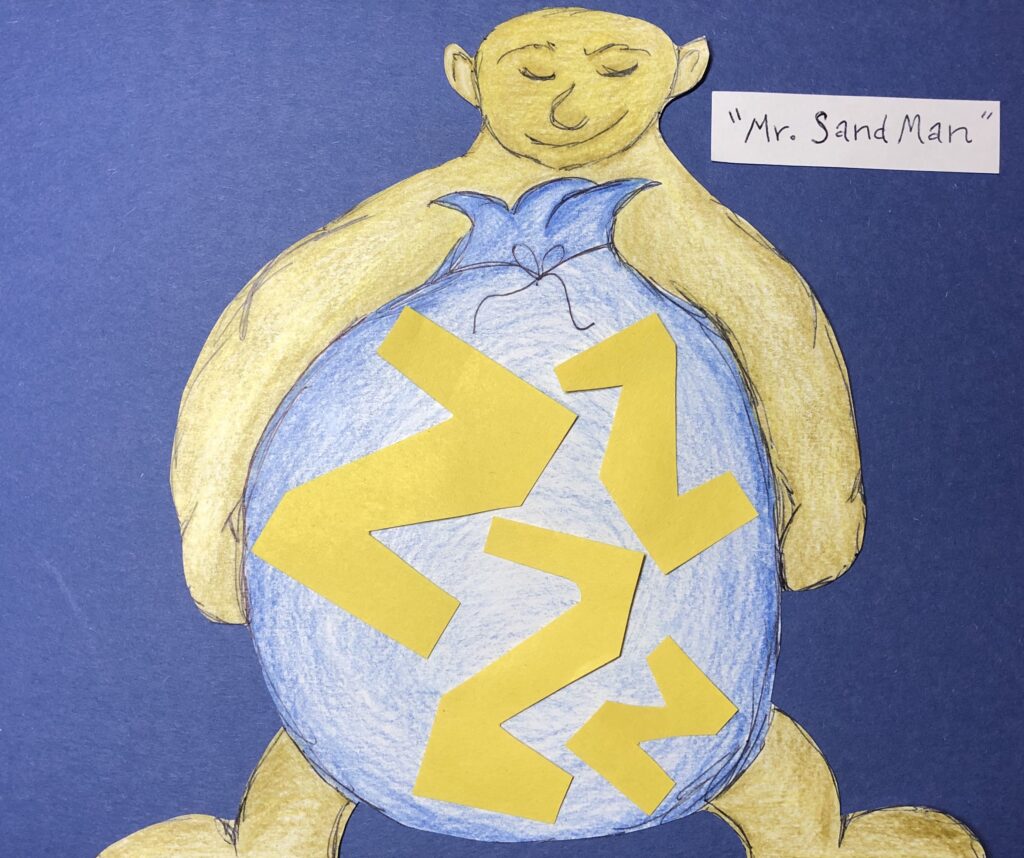
We all have so much to worry about, now more than ever. We numb our minds during the day, keeping ourselves busy most of the time so we do not have to face all of life’s challenges and bad news.
All of that denial seems to stir and gnaw at us during our evening ritual with the elusive “Sand Man.” We cannot deny, hide or change the state of any part of our lives during the wee hours of the night, but oh, how they haunt us.
As a child we are taught to pretend we are asleep and it will come for us. This works for some. Counting imaginary sheep is another alternative. Falling asleep to a parent’s voice reading a story, or listening to a lullaby seems to work for others. When I was almost a teenager, I cried myself to sleep and that worked for me.
When you grow older, as I have experienced, it is much more difficult to fall asleep. Personally, sleep is much more important now, as I do not wish to carry my mind into the swirling tornado of mania.
For a while, it seemed I had exhausted almost all of my techniques for falling under sleep’s spell. I hope I don’t jinx myself by saying that I have been sleeping well, though it is a difficult balance and does not always work. Here are my suggestions in case you have similar problems.
I take evening medication which has proven effective. I have a bowl of cereal with my evening medications, which helps immensely.
Focusing on my breathing helps the most. Inhale, exhale. Focus on nothing else. Leave the sheep in the pasture. Let your breath be your lullaby.
Exercising during the day has a great effect on my ability to sleep. Not only do endorphins fill my brain with true happiness, but when I am depleted of energy it is hard to stay awake, and I look forward to sleep’s blanket.
When I am really struggling, I think of a happy memory and slowly remember every detail. I don’t mind sharing my happy memory with you.
I grew up loving everything Disney. The movies, the princesses, the stories. I have been to the Disney store in New York City a few times, and have happy memories of Disney World as a child. While those memories are happy and Disney related, my happiest trip to Disney World was with my mom and grandma when I was 32.
Mom and I drove down to visit my grandma in Florida before COVID-19, and we decided to visit Disney World together. The fun began when I got into the car with Mom to begin the long drive, and continued when we met with my grandma. We all set off for the park and continued our adventure with the ride from the parking lot to the admission line. I didn’t even mind the lines because of the company I was keeping. I loved the ferry ride to the park and seeing Cinderella’s Castle as we got closer. I loved walking around with my mom and grandma, chatting, buying expensive food and drinks, and waiting for hours to board rides that lasted less than five minutes.
When I run through that memory in my head, I experience happy, relaxing feelings which help me to fall asleep. I think that is the best advice I can afford you.
Remember this advice so that if you have to chase the Sand Man you have a better chance of catching him. Sweet Dreams!
—SJB
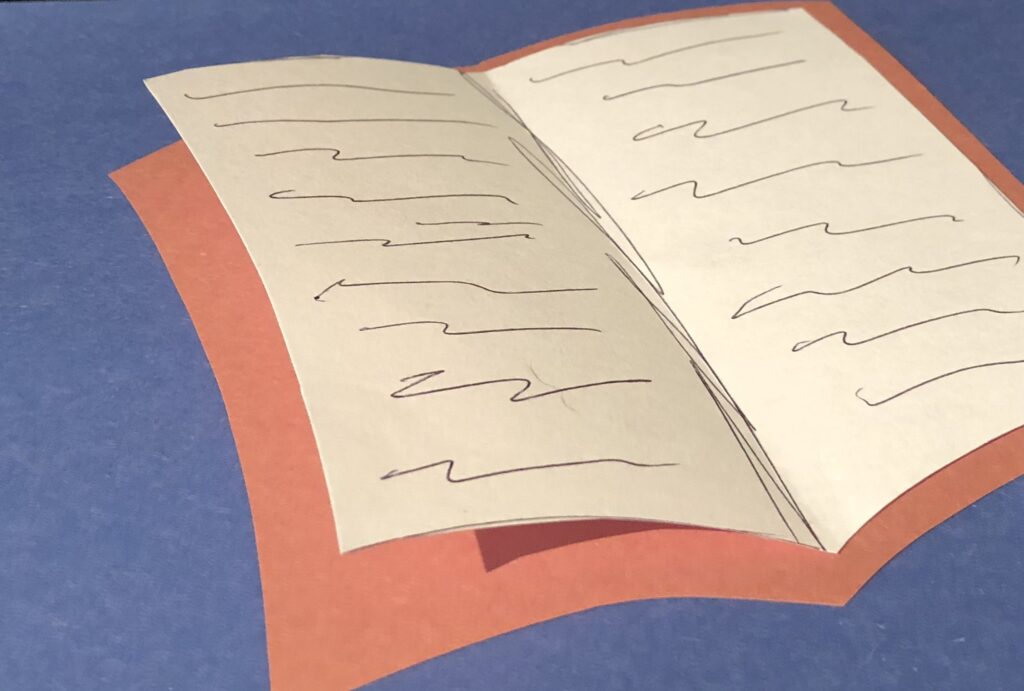
I recently got married. Before that, my husband and I were in a committed relationship for a few years. He is my best friend. We have taken many vacations together. Our favorite spot is New York City.
On our first trip to the city in 2018, we discovered a wonderful, surprising shop. Everything was new, and extremely low priced! It reminded me of a Dollar Store.
I found a journal designed for documenting five years of your life. There are small spaces next to year markers, and you fill in what you did on that day in that year. I thought it was a great find!
At first, I was very good at keeping up with it. I recorded our daily activities during the trip. Then I forgot about the journal and moved on. It was lost in a sea of many other journals I keep.
Keeping a journal is a great way to record your life, improve your memory, and document your daily and yearly activities and accomplishments. They also help express feelings you didn’t even know you had until you wrote them down.
Sometimes, I still like to surprise my husband; strictly because I love him and want to keep him on his toes. One day, I left encouraging post-it notes on the mirror in his bathroom. Recently, on my birthday, he covered mine.
Naturally, I couldn’t leave the notes up on my mirror, though I seriously considered it. I searched for a place to keep them preserved. I looked for a sturdy journal and found the five year journal I had forgotten.
I was inspired to keep up with it once again, and interested to read my previous entries. They were all about our first trip to New York, and my husband and I enjoyed reading them together.
Journals can be helpful and therapeutic, but it was also very nice to go back and read about a time before we lived together, before we were engaged, and before we got married.
Journals don’t have to be written with the purpose of turning back time to reminisce. You can keep a journal, write things down and destroy it right after you read through it. You don’t have to show it to anyone. It helps me to decipher the feelings my words express.
Try keeping a journal for a week. Write an entry every day, no matter how short. It may help you remember your day, especially if you have problems with memory. You may also have an easier time talking to yourself than you do to other people.
Don’t think about it. Just let the words flow and read it when you’re done. You will be surprised.
I hope this advice is helpful and that you really will give it a try. Happy writing, and have a great weekend!
—SJB
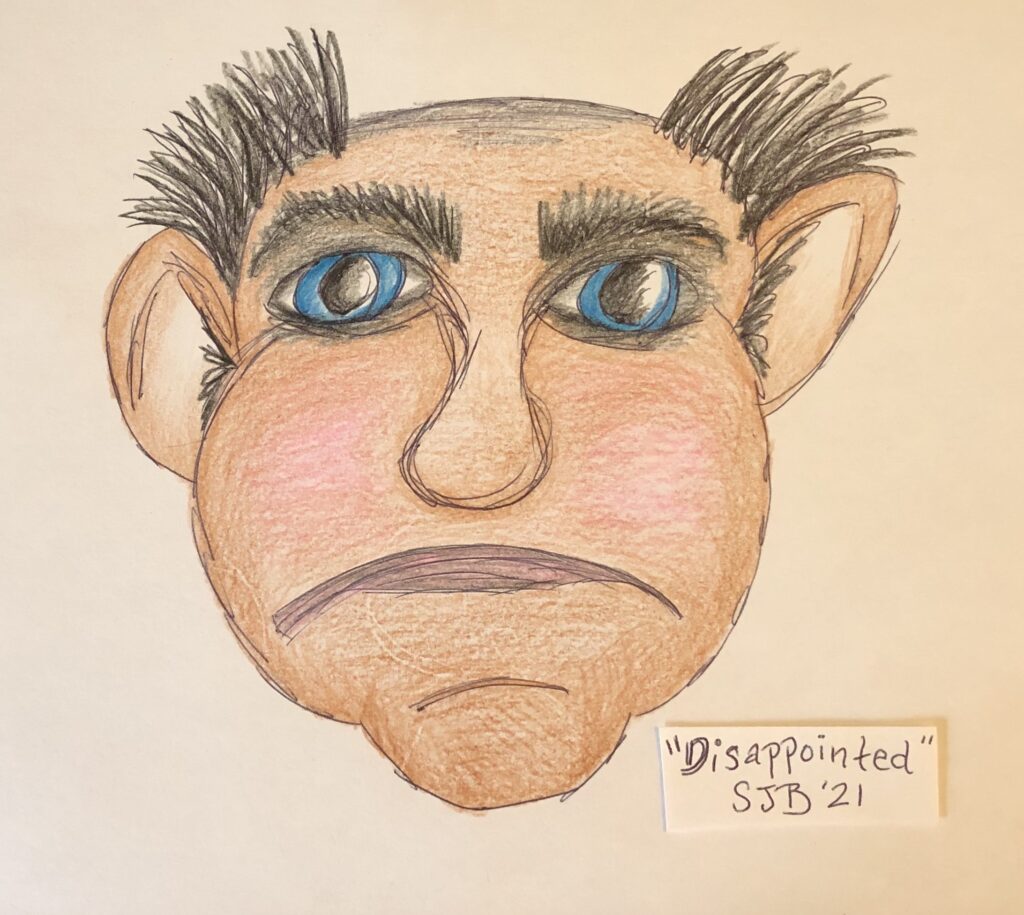
We have all faced some sort of disappointment in our lives. Some of us feel that our lives are over before they have started. We haven’t had a chance to “make something of ourselves.”
As we grow older, some of us experience a creeping dread that follows us wherever we go. We are afraid of growing up. Many of us wish to be whisked away by fairy dust and Peter Pan. We may believe that if we had made better decisions earlier in our lives, our lives would be better for it now. Some disappointments are so heavy that one person cannot bear them alone.
It is very important to express your disappointments. Talk to someone who is willing to listen. Speaking your unhappiness aloud keeps resentment at bay.
We have been disappointed in people we thought we could count on. We have been disappointed in ourselves. We have been disappointed by our misfortune, by God, our leaders, our government. Sometimes our disappointments send us to dark places. Places where we feel alone and scared, sad, resentful, and sometimes angry.
I speak of “we.” I do not know for certain what anyone else feels when they experience the darkness of disappointment. I do know that it can lead to depression.
In a world filled with so much turmoil, it is easy to be disappointed. It is enough to bring us all down if we let it. No matter our differences, our difficulties and our disappointments, we can only change the world for better if we choose to stand united. Otherwise, we are living in a state of chaos; a puzzle with thousands of corner pieces.
Most of the time, disappointment follows the failure of great expectations. We must let go of the bondage of our expectations in order to live a life full of surprises. Live a life in the present, and appreciate each moment of the day as if it is our last. As my grandmother says, “You can’t move forward if you’re looking back.”
Disappointments happen to us all, but it is never too late to “make something of ourselves.” Every life matters. Every decision makes a difference. Your self has been made, even if it is not visible to you. It is your relationships with others, your words, and your actions which are your legacy. Do not believe that you will leave this world without a mark.
—SJB
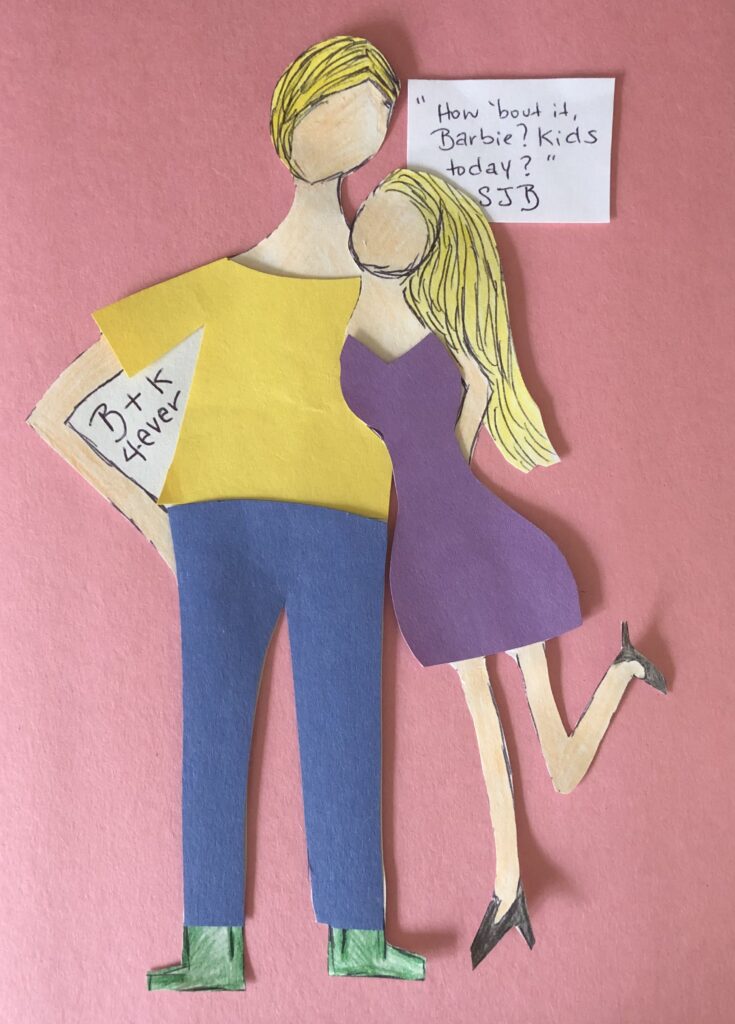
Throughout all of our lives, no matter who we are, where or how we grew up, we have all had a pile of expectations weighing us down like a bag of bricks.
I understand that everyone grows up differently. Our childhoods are not the same, but we all carry expectations from birth, whatever they may be. These are the expectations we bear from our parents, our elders, our peers, and even ourselves.
In my version of the world, a young child is expected to have proper table manners. We are expected to be polite; to say “Yes, Ma’am,” and “No, Sir.” We are expected to do the right thing. Not to fight; to work through conflict. No doubt about it, my childhood was a great one, but it was full of expectations.
I have three younger sisters; my parents are still happily married and my home life was safe, healthy and fun. I am the eldest sister; however, so I was expected to pave the way for those following close behind.
When my sisters and I were young, we played with Barbie dolls, as did most little girls my age. Our basic understanding of the world was played out through the lives of Barbie and Ken. They courted, kissed, and eventually got married. After that, they lived “happily ever after” and that was the end of the game unless we wanted to play on a few more minutes for them to have children. We had no idea what life was like after “happily ever after.” That was all we knew.
As a teenager, I had to learn things about life that I couldn’t yet share with my younger sisters and didn’t wish to learn. That conversation was awkward and uncomfortable, but I was expected to keep it to myself until my sisters were let in on the “secret” of what really happens when Barbie and Ken have kids.
As I grew older, I began to consider following the mold my parents had set out for me. I expected that of myself. College, then marriage, then “happily ever after.” Except that didn’t happen for me.
I was in college for five years. I never met anyone special. I moved on between various jobs. I lived with my parents and dealt with my mental illness, trying very hard to control it. At some point, I was hospitalized. I made it out, gained a lot of weight, lost a lot of weight; eventually I moved to a place where I wasn’t reminded of the hospital and didn’t have to drive past it.
We must let go of our expectations so that we are open to life’s blessings. I did not meet my expectations. Something better came along. I met my husband, Rush, and finally found my “happily ever after.” Even though we will not be having kids, we are free to find out what happens next in our lives together. Barbie and Ken may never figure it out, but I am hoping we will. There is much to be done after “happily ever after.”
—SJB
For those of you who don’t know, can’t remember, or didn’t read the previous articles about Chester; Chester is my cartoon self. He represents my feelings, activities and daily life; and he marks big events in my life. Sometimes he helps me solve problems by stepping back and seeing them through a different pair of eyes. Lucy is the love of Chester’s life.
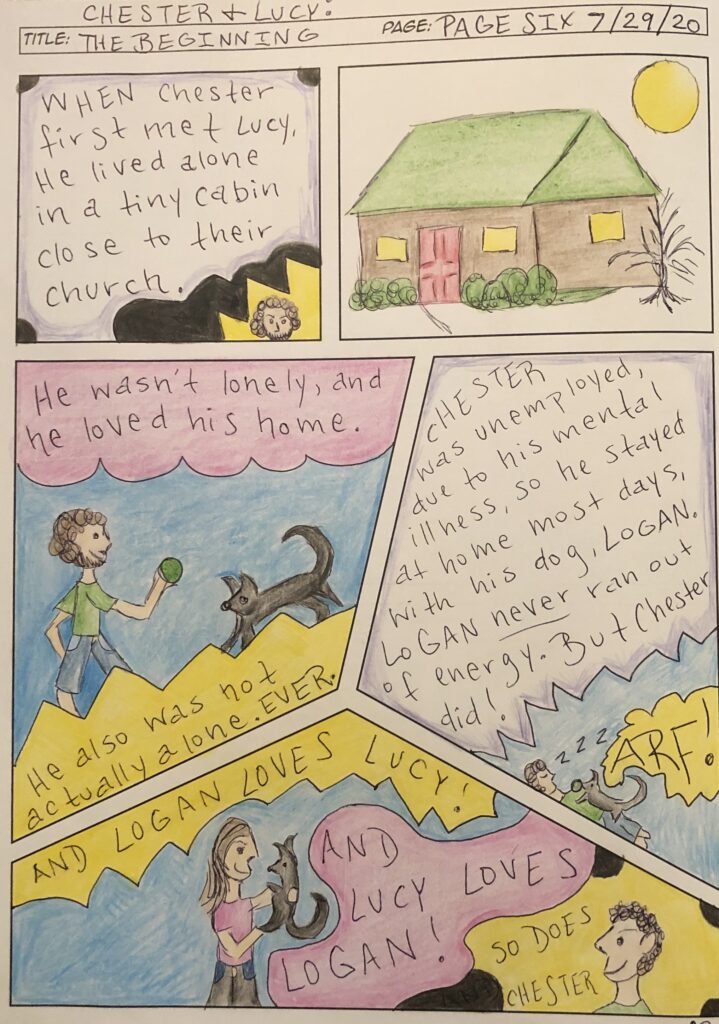
When Chester first met Lucy, he lived alone in a tiny cabin close to their church. He met her parents at church, before he met her.
Chester wasn’t lonely, and he loved his home. He had nice neighbors; he could walk everywhere he went; and he was very close to the library. Chester loves to read.
Chester wasn’t lonely, and he also wasn’t EVER alone.
Chester was unemployed due to his mental illness, so he stayed at home most days with his dog, LOGAN. That is how Chester writes Logan’s name whenever he talks about him. It isn’t for emphasis. I suppose he spells it that way because LOGAN is such a small dog with a large personality. LOGAN never ran out of energy. But Chester did! LOGAN followed him everywhere he went. LOGAN took every opportunity to sit in Chester’s lap. LOGAN always wanted to play. Chester never got space from LOGAN. He rarely wanted it, though. LOGAN was a good, sweet, and very smart dog. He still is.
LOGAN loves Lucy! Whenever Chester walked LOGAN, he led Chester straight to Lucy’s art gallery.
Lucy loves LOGAN!
And Chester was beginning to love Lucy, as well.
–SJB
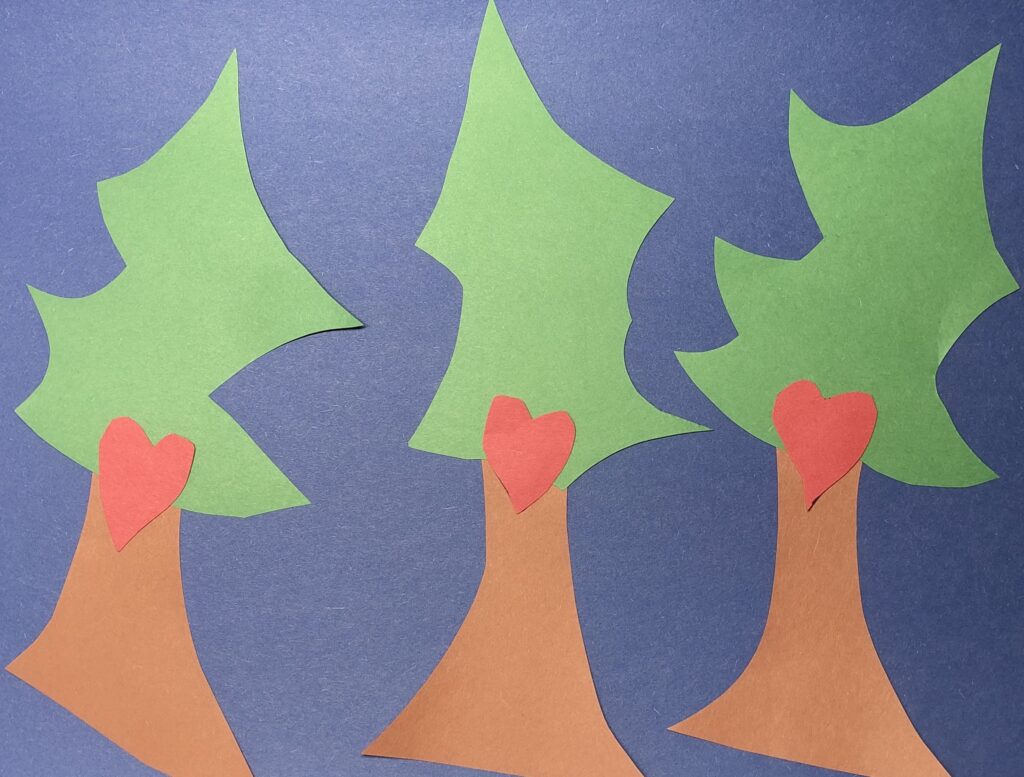
I have been a writer for a very long time, and my illustrations began to take shape long before my stories were complete. As a child, I wrote and illustrated many children’s books that went unpublished. I had and still have an avid imagination, and my work has always been childlike.
I have devoted my life to the telling of fairy tales made true by the human connections I experience in my life. My stories come to life like Margery Williams’ “Velveteen Rabbit;” I love the words, change the words, and finally make them real.
Starting at a very young age, I have focused on quite a number of topics close to my heart. For example, the environment.
As a small child, my parents and I went camping frequently. I fell in love with animals in their natural habitats. I grew accustomed to rain and discovered the delights of mud. Above all else, I befriended the forest, and the trees therein. They were for climbing and hugging. They brought fresh oxygen to my lungs; shaded me from too much sun, wind, and snowfall.
The trees protected me. So unlike the “taking boy,” in the story of “The Giving Tree,” by Shel Silverstein, I never imagined hurting trees or taking advantage of them. I also didn’t realize that not everyone held trees in such high regard. They are sacred to me.
Many people haven’t realized that cutting down trees and planting new ones does not mean a forest will grow overnight. Trees take years to grow into adults. Understandably, there has been a shortage of Christmas trees for the last three years at least.
Riding in my car seat–only two years old–I watched a truck drive by with more than a handful of felled trees. I experienced a feeling something like hate for the first time. Around my pacifier, I angrily said, “Put those trees back right now!”
Even now, it upsets me to see those trucks drive by carrying dear friends. Sometimes it brings tears to my eyes, though I am no longer two years old.
I grew up with the knowledge that reducing, reusing, and recycling were of utmost importance.
I thought of many ways to reuse resources. For instance, instead of buying bottled water, everyone in my family used a thermos and refilled it. No need to waste more plastic than necessary. I was aware of the landfills and humans using the ocean like a public dumping ground. I wanted no part in that destruction.
I cut through the plastic holes that previously held soda cans, so that no sea creature would struggle with a small trap around her snout. I knew without a doubt that if not recycled, the plastic would find its way to the ocean. When we don’t recycle, there is a terrible price.
Not long ago, a quote found me. It read, “Don’t throw anything away. There is no away.” There is no away. We have been given the earth as a gift, and we have exploited her.
I won a poster contest depicting on one side the world as it is, with animals fighting to survive human waste. On the other portion of the poster, I illustrated a world in which we could live peacefully together without pollution.
When I saw litter on the ground I picked it up. Once, at a pond near my grandmother’s house, I climbed down into the water to dig out visible garbage so that the ducks would not mistake it for food–especially the ducklings, which were young and vulnerable.
Reducing waste is one of the biggest changes we could make at the time, and the situation hasn’t changed. The human race is wasteful. If we conserve the resources the earth has given us, she could heal and grow and produce more of what we need. Instead, we are depleting them. Even as a small child I understood this more than some adults. This is even more important now as it was then.
I wrote an article in the local newspaper when I was in the second grade about reducing, reusing, and recycling; imploring the town and the world to hear my words and take action.
The Mayor sent me a t-shirt.
—SJB